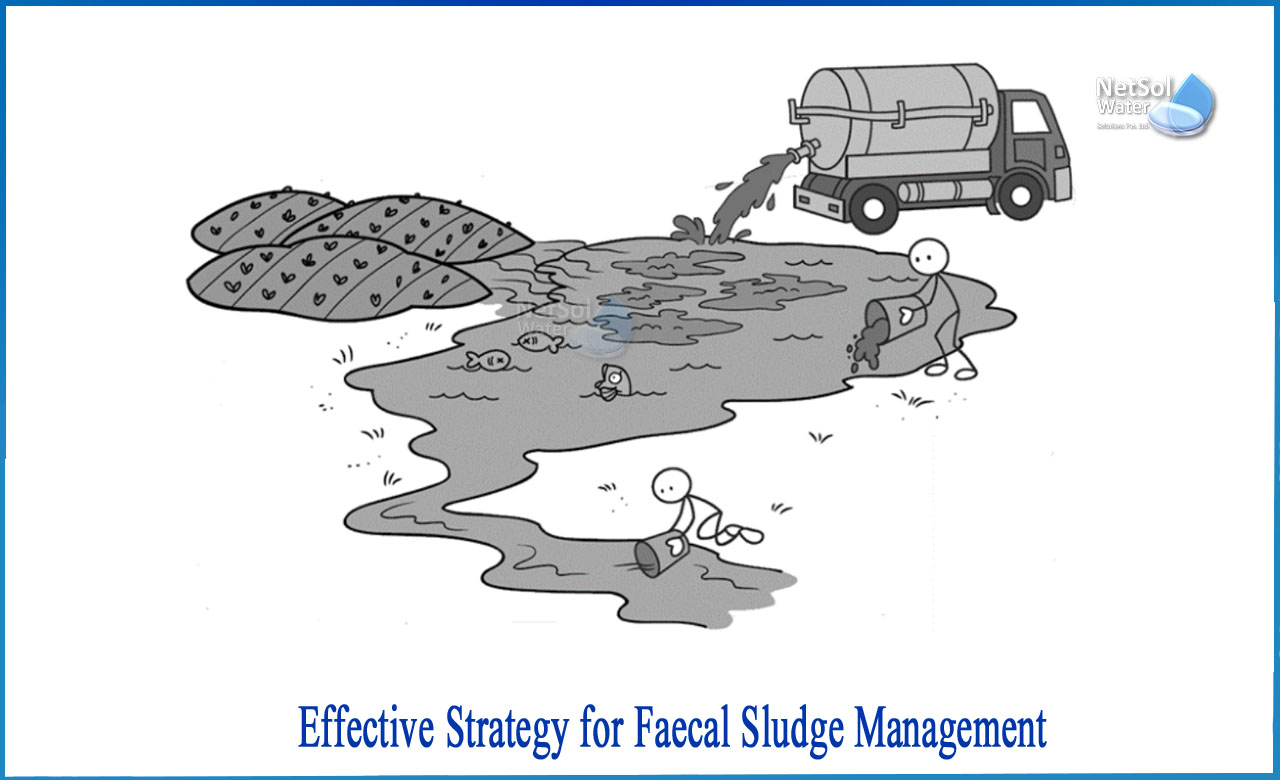What is faecal sludge management?
Faecal sludge constitutes solid waste, liquid and semi liquid waste, human excreta, and other waste like toilet paper, food waste, cleaning materials, trash, debris, etc. It is more concentrated with suspended and dissolved solids when compared to wastewater.
According to an estimate from Energy Alternatives India – EAI, approximately 0.12 million tonnes of faecal sludge is generated in India per day. In a developing country like India, the urban areas are now densely populated and nearly 70% of households with toilets are connected to septic tanks or onsite sanitation systems. The same is the case with hotels, restaurants, and other commercial spaces.
Manure Sludge Management Challenges
Key elements and best practices are often overlooked, which can lead to dramatic consequences such as sludge build-up, foul odours, overflows and returns from septic tanks.
In addition, millions of people continue to defecate. It is dangerous to indiscriminately dispose of human excrement and manure sludge without treating it outdoors in a dense area. It causes the release of foul odours and some health hazards. Inorganic chemicals are drained into the sewer and into the body of water. Exposure to pathogens in manure sludge can cause illnesses such as cholera and diarrhoea in humans. It can attack surface and groundwater and contribute to pollution.
As one of the world's largest users of groundwater, water pollution poses enormous health risks to India. Collection, transportation, and disposal of faecal sludge are a major challenge for on-site sanitary or OSS facilities. Inadequate municipal infrastructure and lack of adequate facilities in Indian cities are also a major concern.
There is an urgent need to address the issue of manure sludge management and achieve hygiene goals. The government's Swachh Bharat mission to improve urban sanitation plays a key role in transforming current sanitation scenarios. Many toilets have been built to achieve this goal, but less attention has been paid to solutions for treating manure sludge.
Converting Infrastructure Construction to Sustainability
In the absence of proper manure sludge management technology, people rely on manual flushing and mechanical drainage. Manual cleaning is banned in India, but many people have died from this septic tank cleaning method. It is also impractical to mechanically empty the septic tank system if it fails due to overload.
The thinking process requires a paradigm shift. In addition to the availability of toilets, effective faecal management is required. Innovative, inexpensive and problem-free solutions for microbial replenishment are very helpful here.
Conclusion
Netsol is a leading provider of sustainable, high performance solutions for wastewater management. Microbial cleaning is an effective septic tank treatment product from Netsol, which breaks down faeces and food waste. It is also effective against fats. This is a cheap and easy-to-use solution that does not need to be manually or mechanically emptied.
Netsol Water is Greater Noida-based leading water & wastewater treatment plant manufacturer. We are industry's most demanding company based on client review and work quality. We are known as best commercial RO plant manufacturers, industrial RO plant manufacturer, sewage treatment plant manufacturer, Water Softener Plant Manufacturers and effluent treatment plant manufacturers. Apart from this 24x7 customer support is our USP. Call on +91-9650608473, or write us at enquiry@netsolwater.com for any support, inquiry or product-purchase related query.



